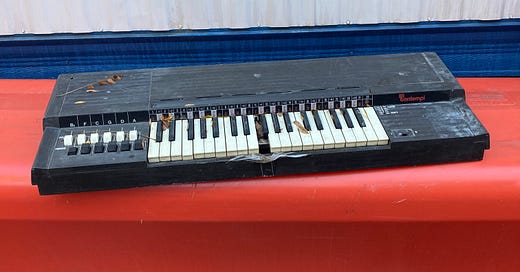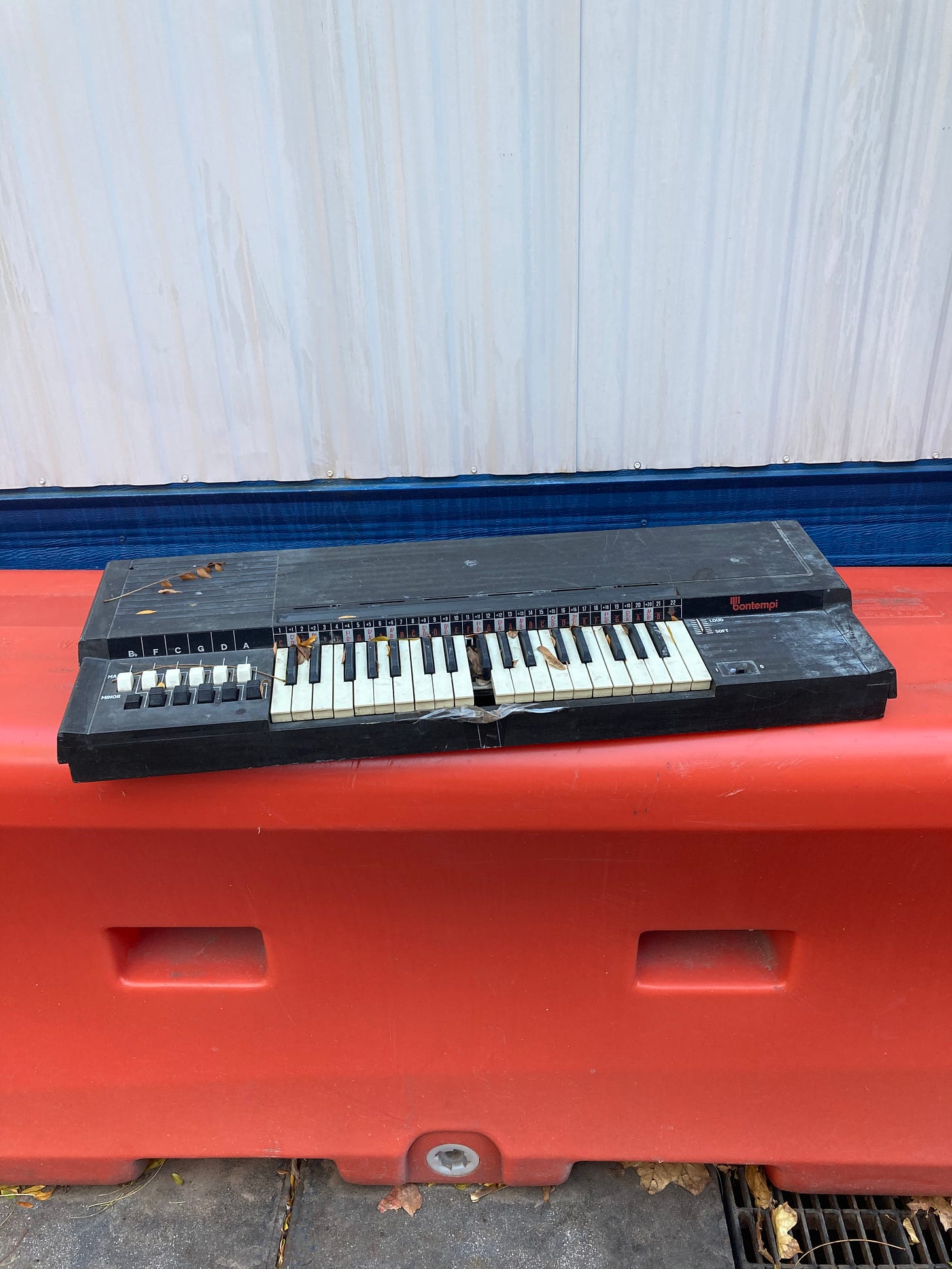Welcome To Dada Strain, 15th of Dec.
The first in a set of periodic attempts to make sense of what the hell is going on *here*
First off, I want to thank you for subscribing to Dada Strain, and, potentially, for reading. You could have signed up for any music content in the world, but you’ve here with me, and I appreciate it.
I am writing you this note a month to the day after “launching” Dada Strain—it’s the first of what will be regular updates to explain what it is I am trying to do here, as I get a better grip and find the language. I am also writing on the 44th anniversary of my family’s immigration from the Soviet Union, which is a good “about the author” fact to help better understand the origins of Dada Strain. In general terms, the American immigrant in me is addicted to “hope,” and the Russian defaults to “earnest” and “critically honest.” (Or maybe that’s the Taurus?) These temperamental qualities are not absolute, but they’re among Dada Strain’s unguarded modes of being.
Another important thing to note is that I don’t regard Dada Strain as a music newsletter. There will always be a lot of music, media and ideas surrounding music here—and, yes, technically by launching on a “newsletter” platform, Dada Strain is a periodic bulletin. But the purpose is not to regularly publish scheduled notes, announcements, reviews and interviews (though any/all these may be part of the content). The intention is the creation of a space for communication and community building—and resource-building for the future. I am a firm believer in intentionality, and the objective of Dada Strain is to use SubStack not as a destination but a point of departure. Thank you for considering taking the ride.
It’s too early to tell you where we’re going, and the goals are unclear by definition, but it’s not too soon to let you know what prompted this undertaking. A simple answer could be “2020,” though that’s a cop-out, since, as I say, the uneasy feelings were seeded long ago. To wit: Couple ingrained immigrant principles about freedom and justice with accelerating distrust of traditional (read: white) American community attitudes, while discovering sympathetic beliefs over lifelong travels through social-fringe subcultures, and experience with BIPOC friends, colleagues and social circles; compounded by professional and creative adventures that reiterated both skepticism of norms, and merits of trusting the emergent and the “other.” This thinking predated the year—even the Tr*mp/Brexit era—but then waving became drowning, and the only ones who can save us are ourselves.
When quarantine hit: I got laid-off from a full-time job at AFROPUNK, with whom I’d worked in various capacities for a decade, developing the relationship between music, media and community. I’d just started adjunct teaching my first semester at NYU’s Clive Davis Institute of Recorded Music, explaining popular music’s historical values and meanings to college sophomores with pop-stardom aspirations. And I took on a project to write a piece of text that connected new music by the great Chicago singer/composer Angel Bat Dawid (directly addressing the importance of shared spaces), and Emma Warren’s book Make Some Space, a cultural history-cum-manifesto that encouraged the documentation of subcultures by its participants (lest history’s winners lie on the permanent record).
The thinking behind all these experiences overlapped. One shared tenet was the foundational importance of rhythm and improvisation (and their manifestation in the human body: the dance) not just as musical qualities introduced to Western “Civilization” by people of the African Diaspora, but as strategies for existence. Also: how the musical qualities, their post-bellum emergence and their contemporary history are directly related. The evidence is all around us. (Am I making sense? If not, I don’t blame you for hitting “delete.”)
Still: WTF does any of this have to do with a SubStack called Dada Strain? This writing is a long overdue attempt to engage music, using the lens of its above-stated qualities and all they express/address, to discuss the potential forms of social and community advancement the music helps unlock (a superpower that I believe to be part of its DNA). The music’s power is often manifested in words, visuals, movements, shapes, technology, printed matter, cooking, and so-on. The music gains power by digesting history, ecology, spirituality, self-actualization, local community, the cosmos, and so-on...which is why Dada Strain can not possibly be ONLY about music. Dada Strain is conceived and produced in the people’s republic of Brooklyn, which is why that will be its unrepentant local POV, but its interest lie in all localized manifestations of the emergent
Then again, a different read finds Dada Strain as the product of just another average white dude—albeit, one with a slightly exotic background and experience—pontificating around his interest in predominantly Black music. And yes...yes it is that too...whether it’s *only* that depends on how you read me...hopefully, it’s more than that. And if it is, please share Dada Strain with somebody who might care.
Again, thank you for reading. If you have any questions, leave a note in the comments. I hope you and your people are healthy and well. I look forward to building with you. PO
PS: images are of works by Rico Gatson, Cauleen Smith, Erik Den Breejen







